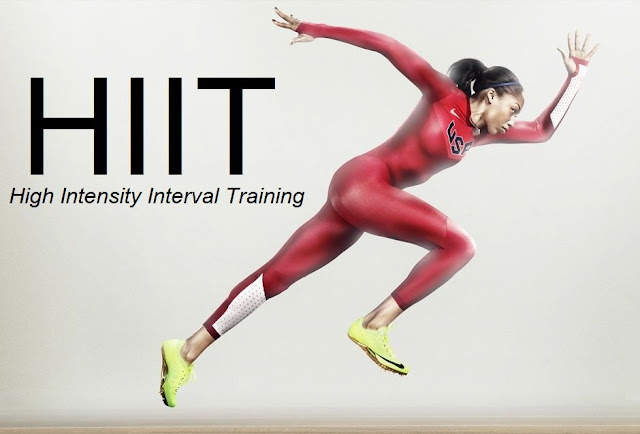
TRADITIONAL CARDIO Vs HIIT
The low-intensity cardiovascular exercise is the most common way to reduce body fat, even though much scientific evidence shows that this form of cardiovascular training does not burn fat as effectively as does
the high intensity cardio.
The low intensity cardio has been shown to inhibit muscle growth, making the use of this approach to improve physical questionable. The low-intensity cardiovascular training inhibits muscle growth because it burns a lot of energy.
To restore the lost energy, some consumers energy pathways are disabled, such as protein synthesis, decreasing muscle rowth. Additionally, if the energy deficit caused by cardio is too severe, the body muscle protein as energy oxidise, leading to loss of muscle mass. Because of these disadvantages of low intensity cardio, it has become more prevalent a different type of cardio known as HIIT (interval training high intensity).
HIIT has an incredible ability to reduce body fat more potent than low intensity cardio without causing havoc on the energy levels in muscle cells form. In the HIIT you have to work at 80-90% of your maximum capacity for about one minute, accompanied by recovery periods of 40 to 50% of maximum capacity, for another minute. Many studies have shown that subjects who practice HIIT improved their cardiovascular capacity and burned more body fat than those who made programs for low intensity cardio and also promoted a more anabolic environment that supported muscle growth.

IN SUMMARY The extended reduction in testosterone levels derived for several days of low-intensity cardiovascular workout promote a considerable loss of muscle mass, while the HIIT tends to favor a more anabolic environment that enhances muscle growth. In addition to burning fat and support a more robust anabolic environment, research has also shown that HIIT burns fat for a longer period of time, after training, compared to low intensity cardio. Scientists think this is because HIIT’s ability to increase production of PGC1-alpha1, which stimulates mitochondrial function in muscle cells.
Because mitochondria are the energy-producing organelles in cells oxidize fat HIIT capacity to improve the activity of mitochondria increases the ability to burn fat, during and after exercise. In fact, studies show that high intensity exercise is needed to burn calories after. HIIT’s ability to increase PGC1-alpha levels in the muscles has additional benefits beyond muscle cells. Which has a direct influence in adipose tissue. Specifically, it has been shown that increased levels PGC1-alpha in muscle cells induces expression of a newly identified protein irisin, which binds to receptors on the surface of brown adipose tissue (TAM).
Irisin binding to receptors on the TAM activates a process known as thermogenesis, which stimulates energy expenditure and fat burning. Consequently, the exercise protocols such as the widely HIIT levels increase PGC1-alpha in muscle tissue, seem to increase the expression of irisin stimulating thermogenic activity in the TAM. Besides being less than HIIT time to burning fat, low-intensity cardio reduces the ability to develop the dough. This is because a lot of energy is consumed, which tends to activate the AMPK molecule. AMPK activation promotes a considerable loss of fat, but also prevents muscle growth to inactivate the enzyme mTOR directly responsible for protein synthesis and therefore muscle growth. Consequently, cardio promotes a significant loss of body weight. However, much of that weight is muscle mass.
In conclusion, although regimens cardiovascular workout low intensity levels increase PGC1-alpha, protocols exercises such as HIIT induce PGC1-alpha more potent form resulting in oxidation of higher fatty acids are cause loss of muscle mass associated with low intensity cardio. Now, do not get me wrong, I’m not suggesting you to stop doing cardio like that. Resistance exercise low intensity has very positive effects for your health, however, I recommend that you combine it with HIIT, especially if your primary goal is to build muscle mass and increase strength. On the other hand, if you do not mind sacrificing some muscles to see extremely defined and scratched, continues with low intensity cardio and watch those extra pounds melt away. Just remember that some of that lost weight is muscle you build cost so much work in the gym, I’m sure you developed and not easily recover not be easy.

The Secret of Six Pack Abs

DIFFERENCES BETWEEN COMPLETE AND INCOMPLETE PROTEINS
También te puede interesar

The Best Diet for Bigger and Stronger Booty
diciembre 5, 2020
WHAT YOU NEED FOR COMPETING IN BIKINI FITNESS
febrero 18, 2024

